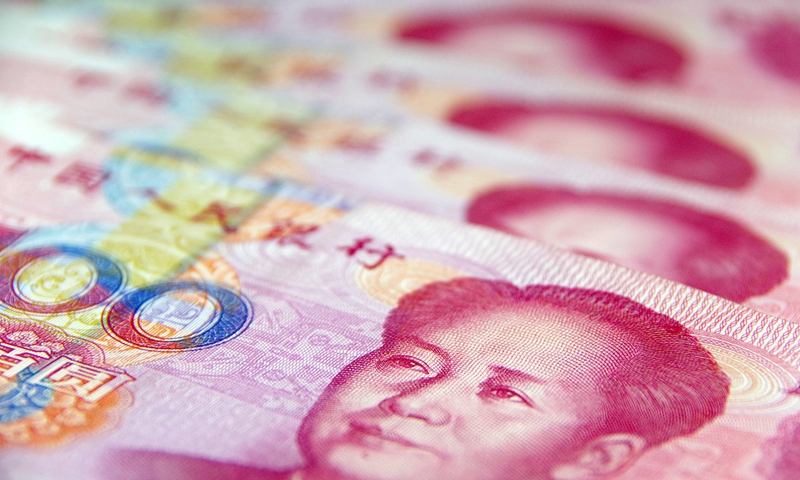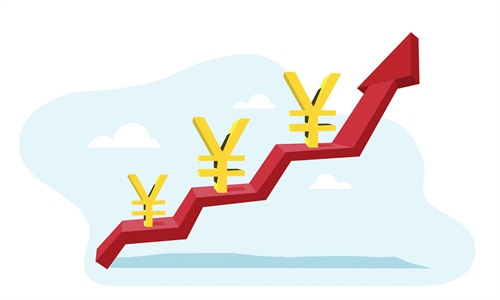
RMB Photo:VCG
Russia said it is to resume foreign currency interventions with the sales of yuan starting on Friday, a move signaling that the Chinese currency is playing an increasingly important role in stabilizing the ruble and Russia's domestic financial stability amid closer bilateral trade connections, experts said.
Observers forecast that Russia will also continue to increase its purchases of the currency, both due to strengthened, complementary bilateral trade ties and China's economic potential, noting that the trend will continue regardless of the status of Western sanctions.
The Bank of Russia will resume foreign exchange market operations on Friday, according to a statement on the bank's official website.
"In order to minimize the impact of the above operations on the exchange rate dynamics, the Bank of Russia will buy (sell) foreign currency in the market evenly throughout every trading day of the month," it said.
Russia suspended market operations in foreign currencies last year after Western countries adopted harsh financial and economic sanctions toward the country following the Ukraine crisis, causing the ruble to become very volatile.
Banks and companies were driven out of the dollar and euro systems, and the yuan became a sort of financial safe haven for Russia. According to a Bloomberg report, Russia has doubled the amount of yuan and gold it can hold in the national wealth fund with much of its savings frozen by international sanctions.
Due to a friendly and stable cooperative relationship with China, the proportion of the yuan in the reserves in Russia became larger over the past year, thus the nation decided to sell yuan to kick off its forex market reopening, Dong Shaopeng, a senior research fellow at the Chongyang Institute for Financial Studies at Renmin University of China, told the Global Times on Thursday.
In August last year, media reports said Russia was considering a plan to buy as much as $70 billion in yuan and other "friendly" nations' currencies to slow the ruble's surge.
Dong forecast Russia will continue to increase its purchases of yuan and boost its reserves, both due to China's economic potential and growth as well as future ability driven by technology and innovation, which is clearly seen not only by Russia but by the whole world.
A complementary trade connection also paves the way for wider use of the yuan in Russia's market. Chen Jia, an independent research fellow on international strategy, said that the scope for yuan-denominated settlement between China and Russia will also widen, whether for oil, natural gas, coal or other commodities.
"Amid slumping European and US demand and Western sanctions, Russia needs to stabilize its commodity prices, secure supplies and find stable energy partners. The yuan is the best option for Russia considering the yuan's stability and China's rising energy demand," he noted.
In the first 11 months of 2022, China-Russia trade reached $172.41 billion, up 32 percent year-on-year and already surpassing the annual figure of $146.87 billion in 2021, Chinese customs data showed.
The two countries are striving to achieve the $200 billion trade target established by the heads of China and Russia, Dong said.
"There is potential for more cooperation between China and Russia. In the next two years, I think that bilateral trade will expand by another $100 billion," Dong said, adding that there is still a lot of room for bilateral cooperation in the fields of finance, energy and infrastructure construction, as well as technology including aerospace and new materials.
In December last year, Chinese Premier Li Keqiang said that the economies of China and Russia are highly complementary, expressing the hope that the two sides will make good use of bilateral cooperation mechanisms, steadily advance cooperation projects in key areas and constantly upgrade the level of economic and trade cooperation.
Li also called on the two sides to optimize the customs clearance process, jointly maintain a stable and smooth industrial and supply chain, deepen cultural, people-to-people and local exchanges and consolidate the public opinion base for friendly bilateral relations.

